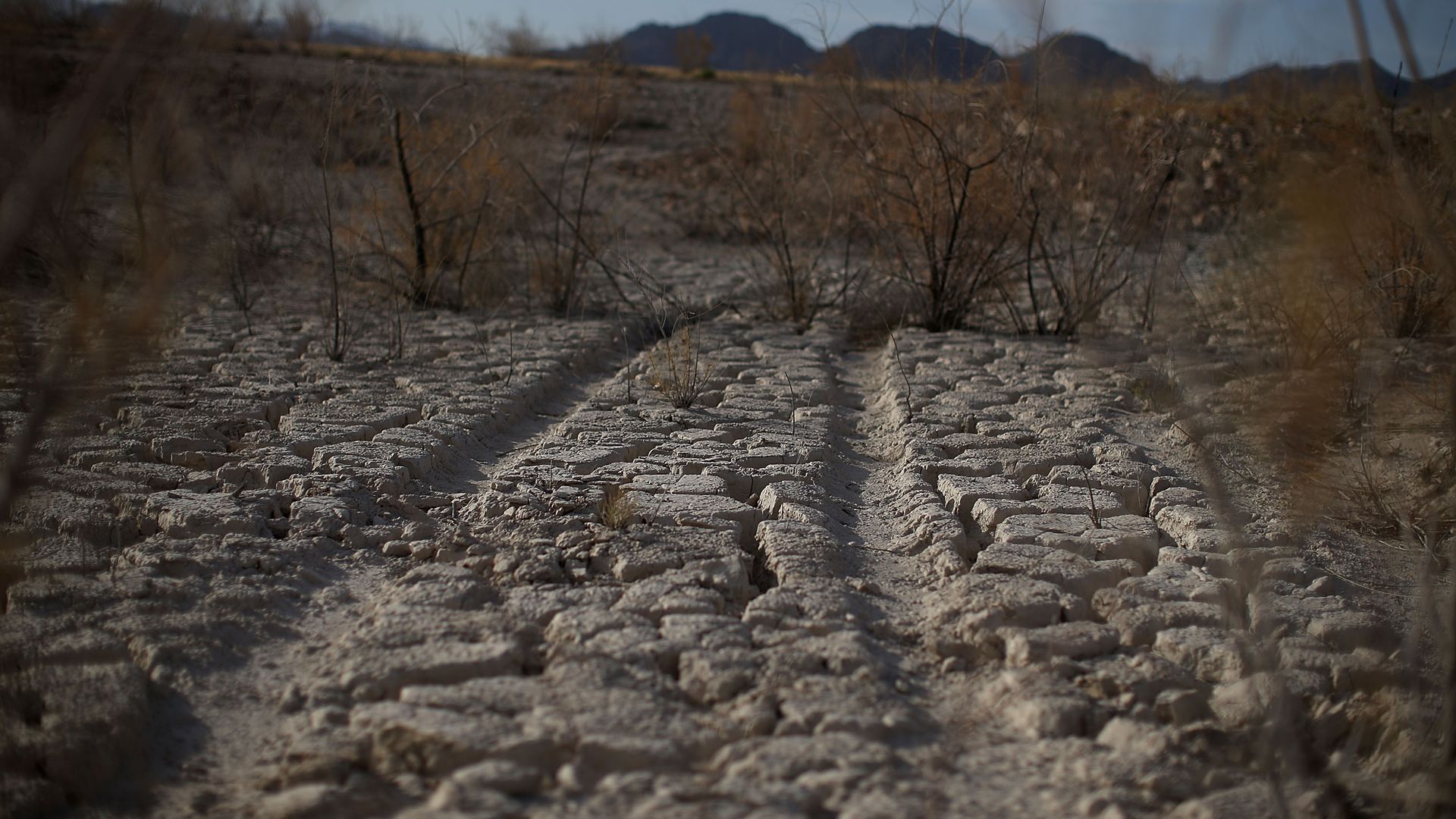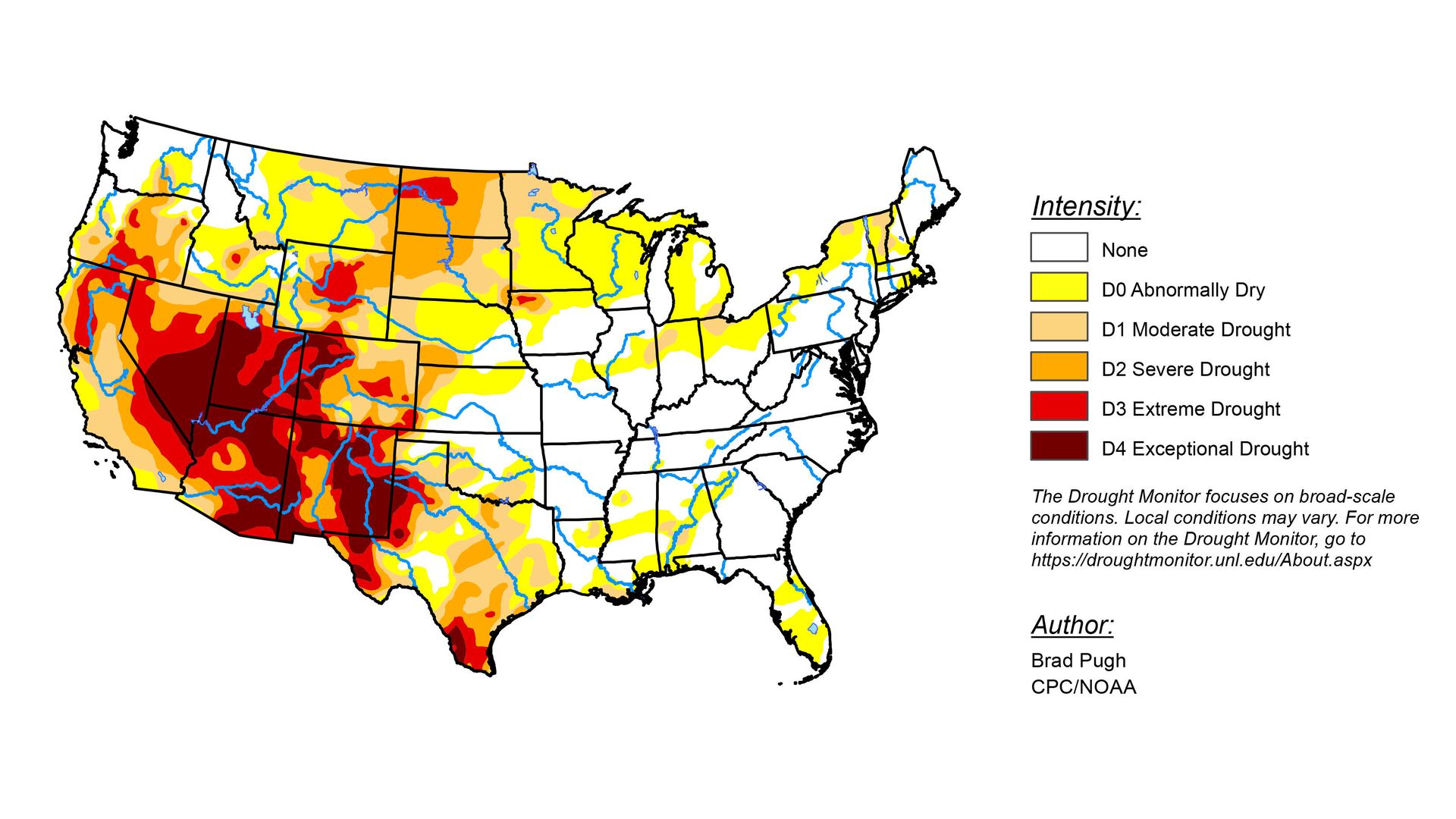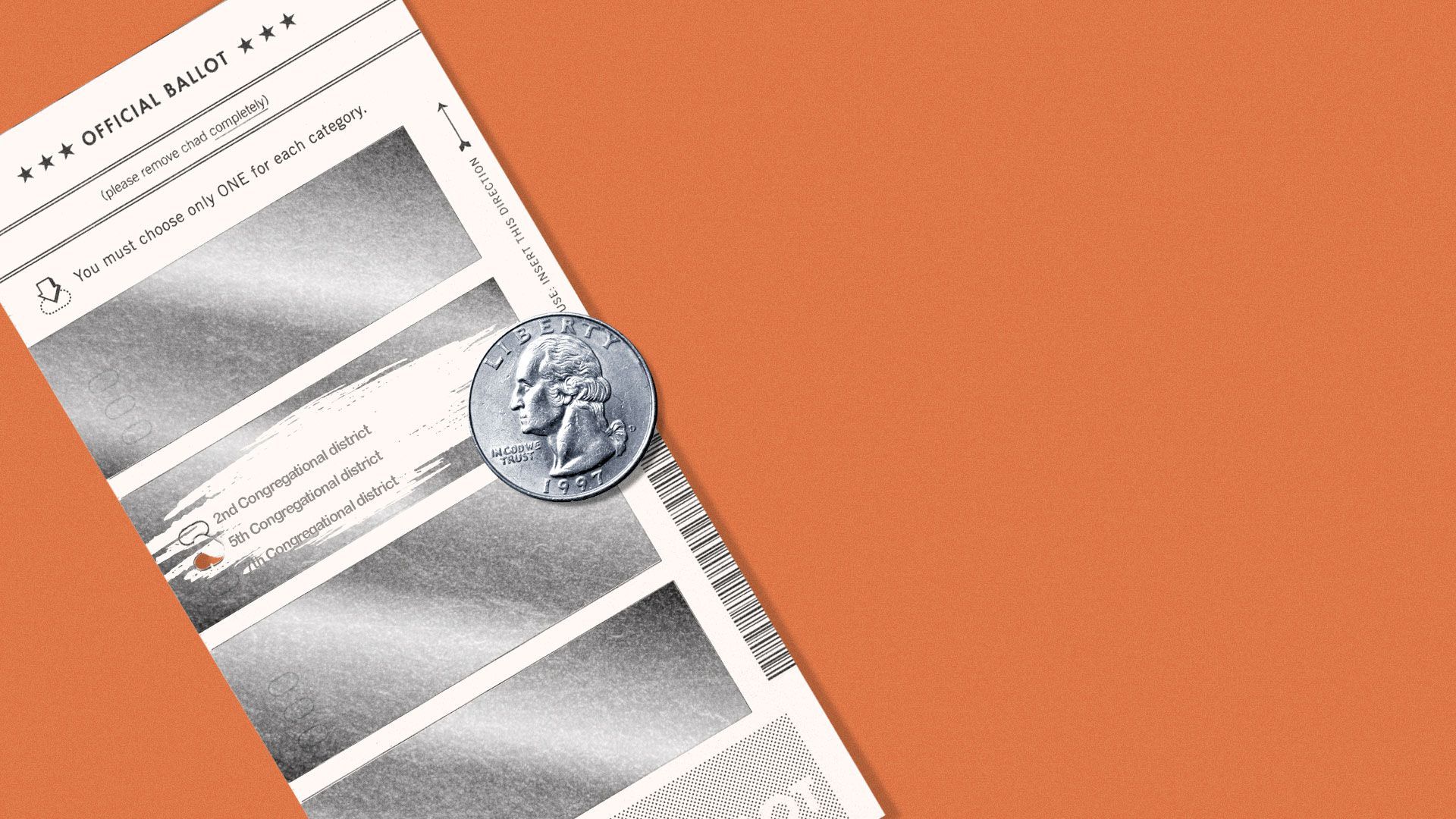From Axios:
| A very, very, very dry future for the U.S. West |
 |
Photo: Justin Sullivan/Getty Images |
The American West is in the midst of a punishing drought, and long-term conditions are only expected to get worse. Why it matters: Much of the West has a deep history of decades-long "megadroughts" — and that was before the added drying effects of climate change. But with population in the region projected to continue growing, both water demand and carbon emissions risk an arid future for the West. By the numbers: According to the U.S. Drought Monitor, nearly 40% of the West is currently in a state of extreme or exceptional drought, the two most severe categories, and barely 10% of the region is altogether drought-free.
Where it stands: The driest parts of the American West are already in the grips of a "megadrought," defined as a prolonged drought lasting two or more decades.
The big picture: The American West has a long history of recurring megadroughts that dates back to well before humans started putting carbon into the atmosphere.
What to watch: Drought is a product of how little rain might fall and how hot temperatures become, but also of how much water humans are taking from the environment.
This means that we're adding more and more people to the very region in the U.S. that has both a history of extreme, multidecadal drought and is set to get drier in the years to come thanks to climate change.
Yes, but: Total water withdrawals in the U.S. actually declined 25% between the peak in 1980 and 2015 — one sign of our ability to decouple growth from water use.
The bottom line: Multiple past civilizations have met their demise in part due to megadroughts, but with smarter water management and climate action, that doesn't have to be our fate. |
| 2. American dry |
 |
U.S. Drought Monitor for March 16 for the continental U.S. Credit: The U.S. Drought Monitor is jointly produced by the National Drought Mitigation Center at the University of Nebraska-Lincoln, the U.S. Department of Agriculture, and the National Oceanic and Atmospheric Administration. Map courtesy of NDMC. |
The most recent U.S. Drought Monitor shows two-thirds of the continental U.S. — and nearly all of the West — in at least some state of drought. Details: The current drought began last year, which was the driest on record for Utah and Nevada, and among the driest for states like Colorado.
|
